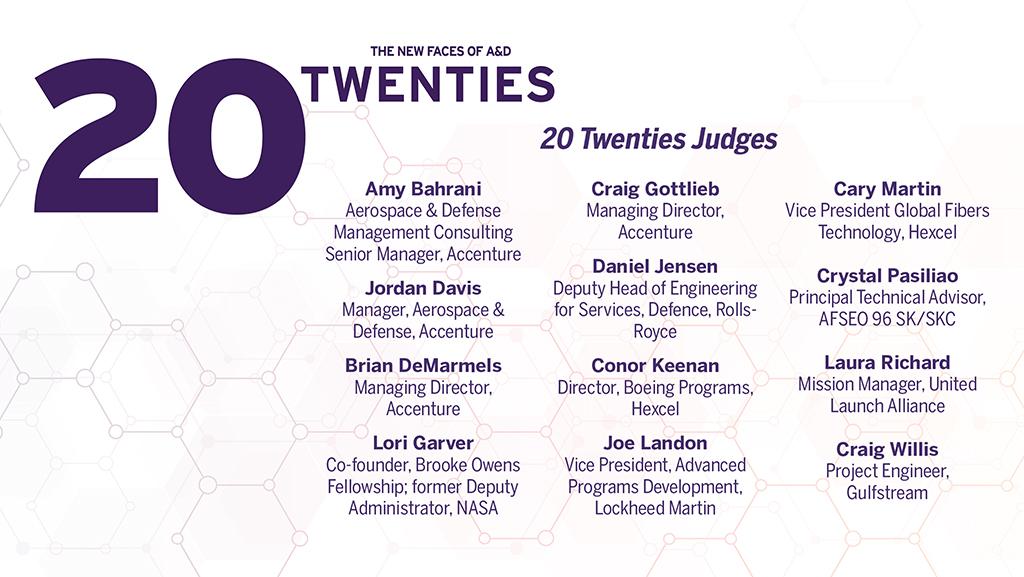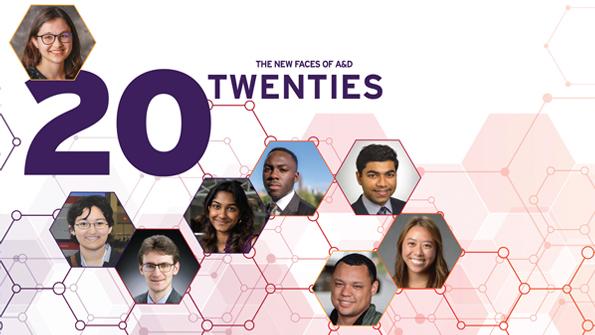
Every so often someone comes along ready to change the world. Aviation Week Network, in collaboration with Accenture, premier sponsor Hexcel and sponsor Boeing, has searched the globe for undergraduate and master’s degree students working to solve challenges within the aerospace and defense industry. A judging panel composed of hiring managers, engineers and academics evaluates and scores nominees based on academic performance, civic contribution, personal challenges and the value of each student’s research or design project. We have discovered 20 students who score high in all these areas and are on a course to change the future of aerospace and defense.
Today we celebrate the accomplishments and drive of 20 STEM (science, technology, engineering and mathematics) students in their 20s. Nominated by their universities, the honorees were selected from an international field of highly qualified students. This year’s honorees are top-ranked in academics, have articulated the value of their research and design projects, dealt with personal struggles and established record for giving back to their communities.
This year’s recognition program had a 34% increase in applicants over last year’s, with 12 new schools participating and five new countries represented. The 2022 Twenty 20s also include an equal number of women to men with highly diverse cultural and demographic backgrounds. Every one of these students represents the future of aerospace and defense.
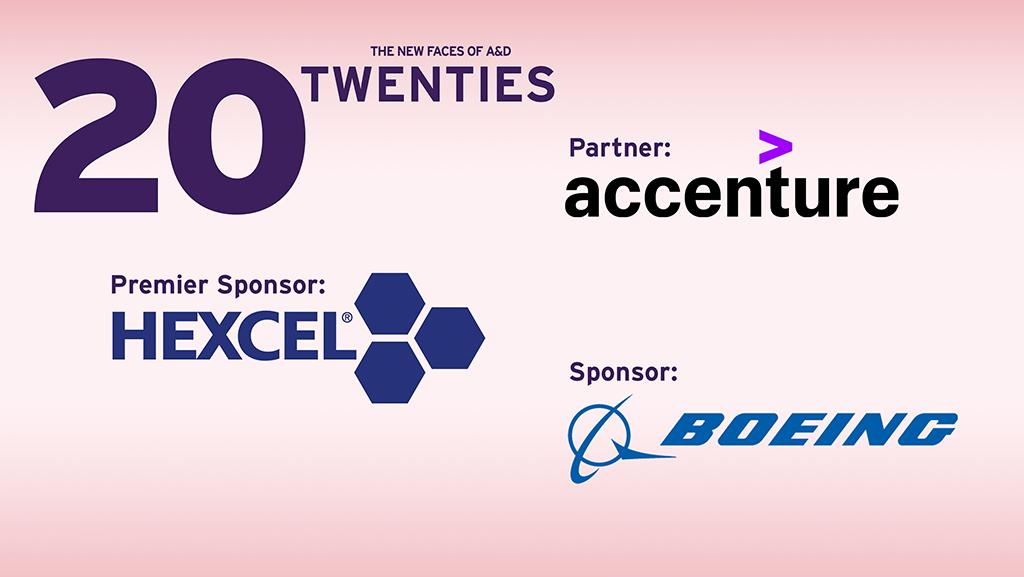
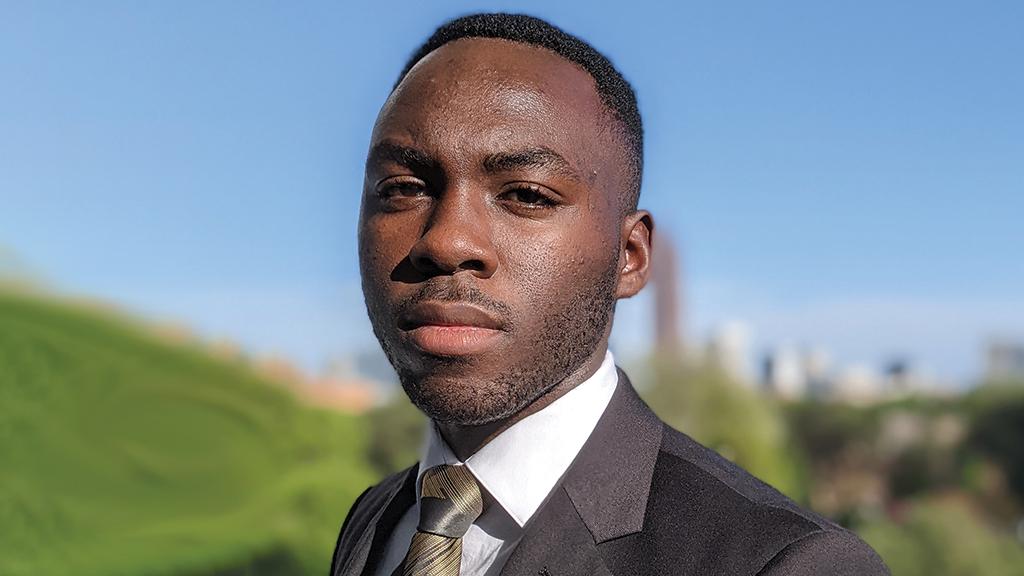
Jesudunsin Awodele—Undergraduate Student, Aerospace Engineering | Class of 2023 | Georgia Institute of Technology
Awodele is working to advance supersonic and hypersonic research through computational fluid dynamics at Georgia Tech’s aerothermodynamics lab. During his systems engineering and integration engineering internships with Boeing, he assisted with development of the MQ-25, a carrier-based uncrewed tanker capable of aerial refueling of U.S. Navy jets. He is also working to solve the challenge of untraceable space debris and Kessler’s Syndrome through the Patti Grace Smith Fellowship, which was created to address racial disparity in the aerospace industry.
Awodele, whose family immigrated to the U.S. from Nigeria, is a U.S. Air Force ROTC flight commander. He devotes much time to projects such as mentoring students and developing STEM projects through the Georgia Space Grant Consortium and Hines Family Foundation. He also helped charter AeroAfroAstro, Georgia Tech’s first Black aerospace student organization.
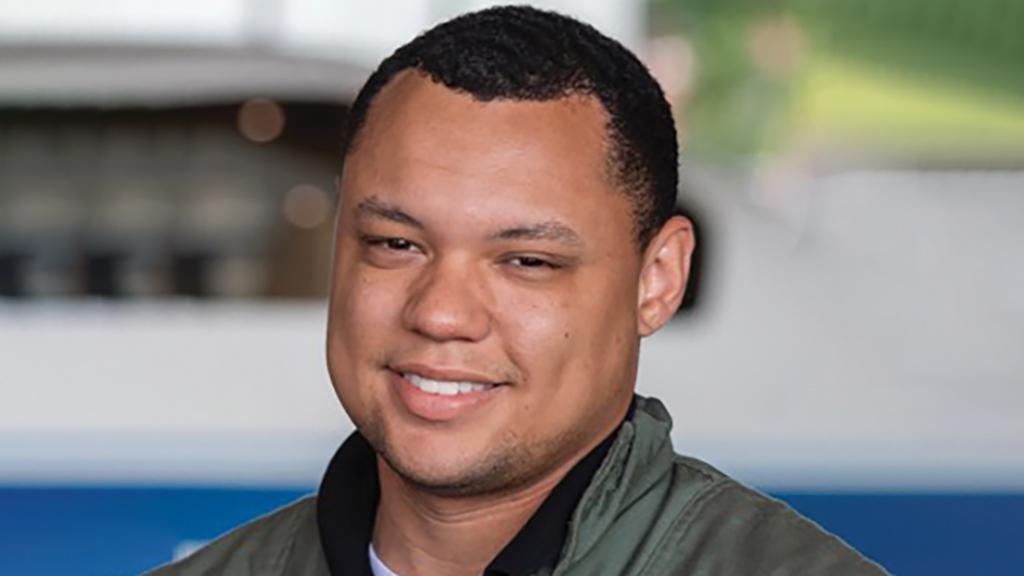
Terelle Cadd—B.S. Aerospace Engineering | Class of 2022 | Virginia Polytechnic Institute and State University
Cadd transitioned from community college studies while working full time at United Parcel Service to pursue his passion for aerospace engineering. As a research associate at NASA Langley Research Center, he worked to apply NASA technologies to solve wildfire challenges. He was appointed team lead for the NASA Academy Team, which developed an image-processing algorithm for drone technology to detect and plot wildfire perimeters in real time as well as an app to reduce miscommunication and improve reporting of fires.
Cadd’s undergraduate research has included designing a 3D-printable drone and improving applied laser flow measurements to reduce uncertainties in readings from geometric scattering. He has assisted students with disabilities through note taking and volunteered with Feeding America and the United Way.
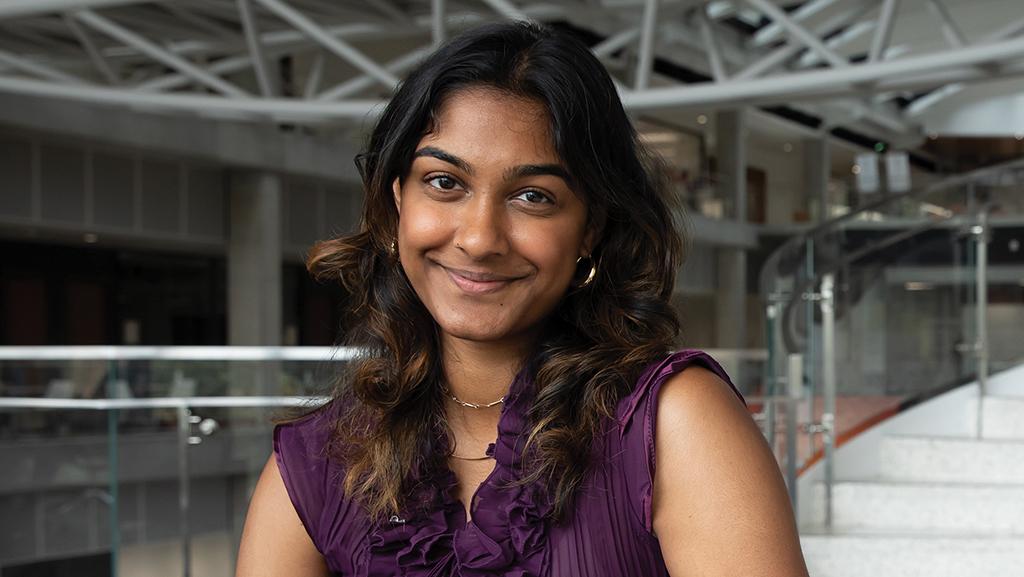
Catherine Dominic—Undergraduate Student, Aerospace Engineering | Class of 2023 | University of Texas at Austin
As director of engineering at the Texas Rocket Engineering Lab, Dominic manages the progress of 10 design teams working toward becoming the first student-run lab to launch a liquid bipropellant rocket to the Karman Line. Dominic was awarded the Brooke Owens Fellowship, through which she completed an internship at Amazon Prime Air. As part of the airline’s materials and processes team, she helped design material and process configurations of primary structures on the airline’s next-generation drone.
Dominic hopes to develop an aerospace study abroad program at UT Austin that will help to remove barriers to entry for minority students, such as cost, lack of awareness, and family and community influences. As part of these efforts, she performed outreach for People Centered Engineering for an experimental study abroad program in Panama this year.
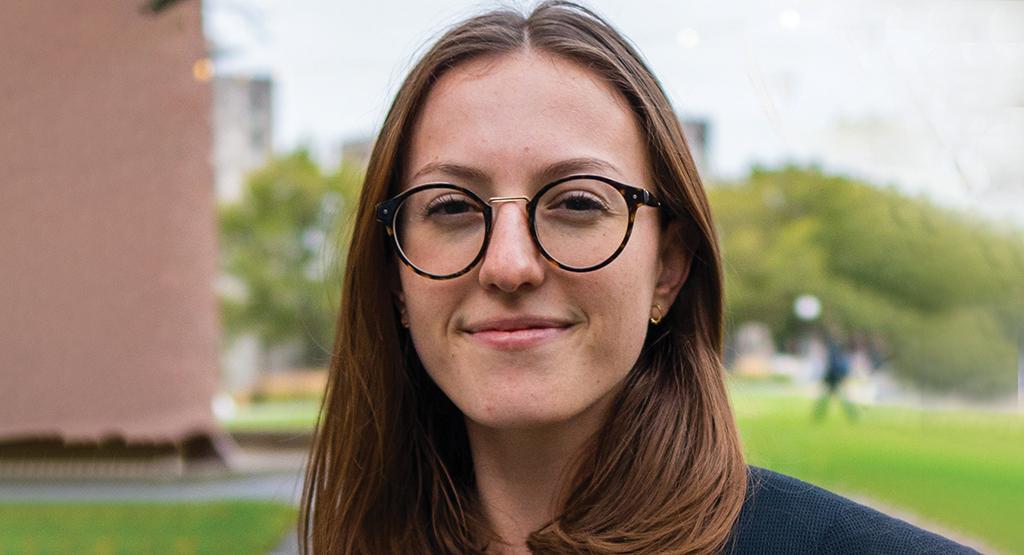
Chloé Gentgen—M.S. Aeronautics and Astronautics | Class of 2022 | Massachusetts Institute of Technology | B.S. and M.S. Engineering | Class of 2020 | Ecole Centrale Paris, University of Paris-Saclay
Gentgen is researching the design of planetary exploration missions with a focus on optimizing propulsion systems and improving sustainability efforts. She was a finalist in last year’s NASA RASC-AL competition, for which she proposed a crewed mission concept to Ceres. She is leading a team in this year’s competition to design a mobile in situ resource utilization plant capable of producing methalox propellant on Mars. She also was selected as a systems engineer for the Caltech Space Challenge.
Gentgen has interned at NASA Jet Propulsion Laboratory, Thales Alenia and Flying Whales. She is president of MIT’s Graduate Women in Aerospace Engineering student group and a member of the Space Generation Advisory Council Group. She is training to become a volunteer emergency medical technician at MIT.
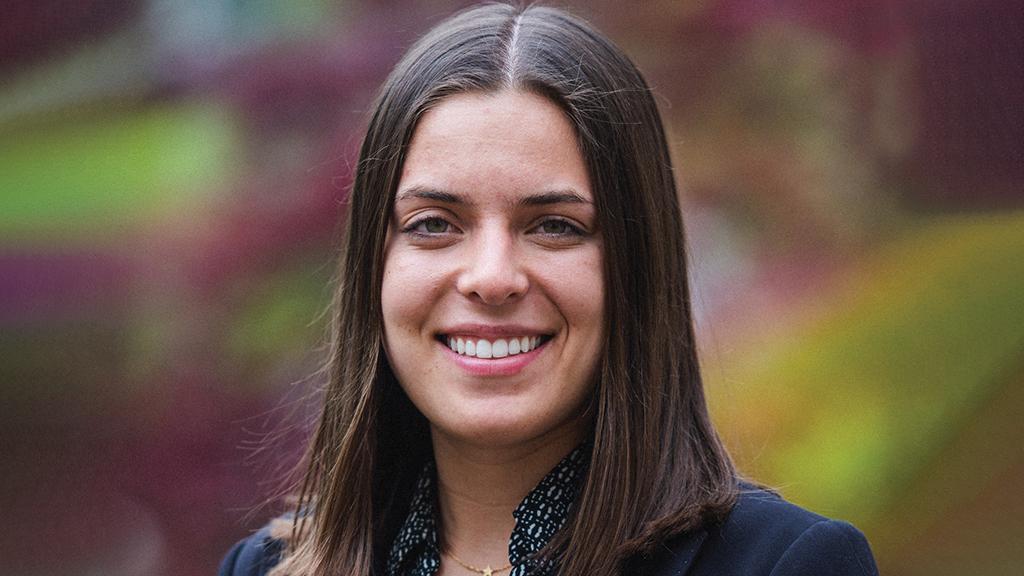
Emily Herrmann—Graduate Student, Aerospace Engineering | Class of 2022 | Georgia Institute of Technology | B.S.E. Mechanical Engineering and Aerospace Engineering | Class of 2020 | Case Western Reserve University
At the Aerospace Systems Design Laboratory, Herrmann is involved in NASA’s Subsonic Flight Demonstrator study to assess future civil transport aircraft designs within the context of reducing the environmental impact of aviation. She also is researching the feasibility of creating new mobility low-cost attritable aircraft for U.S. Air Force applications and how to connect manufacturing considerations to preliminary design of hypersonic glide vehicles.
Herrmann worked as an associate systems engineer at Northrop Grumman and has interned at Textron Systems, Comsat Architects and Bell Flight. She has volunteered through the Society of Women Engineers and the Women in Science and Engineering Roundtable to teach STEM activities to local Girl Scout troops. She is earning a private pilot license through the Yellow Jacket Flying Club as well.
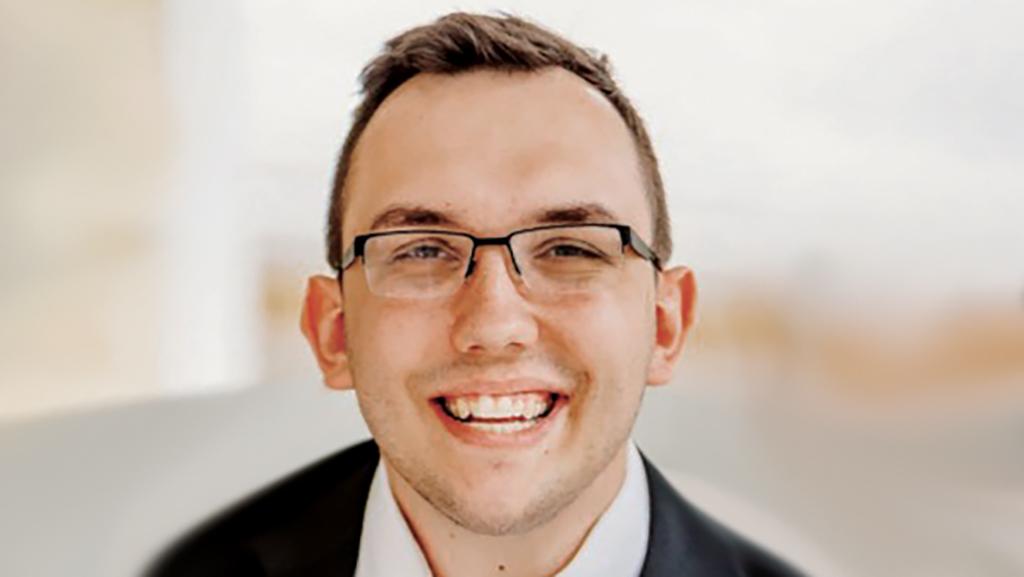
Joshua Ingersoll—M.A. International Science and Technology Policy – Space Policy | Class of 2022 | The George Washington University | B.S. and M.S. Aerospace Engineering | Class of 2019 | Georgia Institute of Technology
Ingersoll is tying together aerospace engineering and the impact of federal regulatory policy. As a graduate student, he researched the relationship between federal regulators, commercial Earth-observation companies and the U.S. Defense Department in the wake of recent changes to the Land Remote Sensing Act. He says the conflict in Ukraine has highlighted the importance of commercially available Earth-observation data.
Ingersoll is a satellite regulatory engineer for Amazon’s Project Kuiper, where he conducts spaceflight dynamics and radio-frequency interference simulations in support of the company’s regulatory efforts. He was a spacecraft systems engineer at The Aerospace Corp. and a systems engineering intern at Airbus-OneWeb Satellites through the Matthew Isakowitz Fellowship Program.
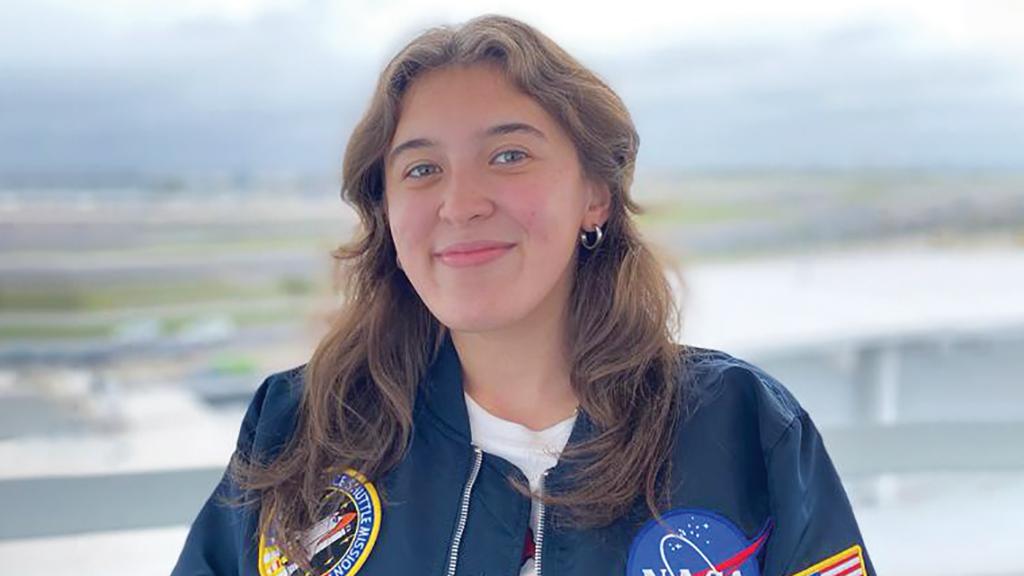
Tatiana Jaimes—Undergraduate Student, Mechatronics Engineering | Class of 2022 | Vaughn College of Aeronautics and Technology
Through NASA’s Human Exploration Rover Challenge, Jaimes is designing and constructing a mechanical rover with a telemetry system capable of collecting data about the status of the driver, rover and operating environment. She was an electromechanical systems pathways intern at NASA’s Goddard Space Flight Center, where she worked on robotic spacecraft systems.
Jaimes is vice president of Vaughn College’s chapter of the Society of Women Engineers and secretary for the school’s robotics team, through which she volunteers to teach K-12 students about 3D printing and robotics. As an international student from Colombia, she participated in a project for the Latin American and Caribbean Consortium of Engineering Institutions to create a low-cost agricultural robot that can analyze soil data and balance its composition preparation for reforestation following wildfires.
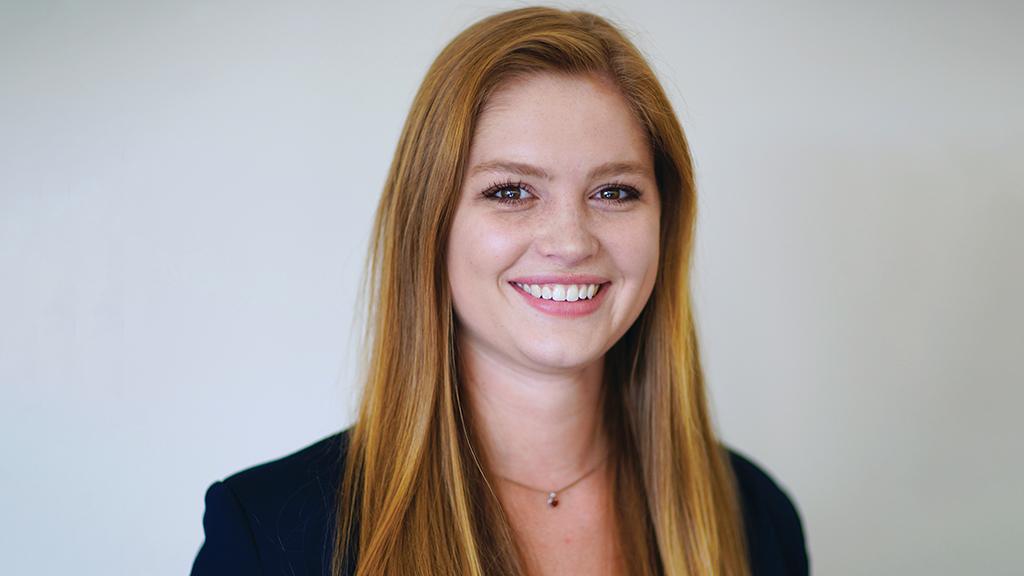
Margaret Kilpatrick—M.S. Aerospace Engineering | Class of 2022 | Georgia Institute of Technology | B.S. Mechanical Engineering | Class of 2019 | Georgia Southern University
Kilpatrick’s graduate research helped NASA analyze how near- and far-term technologies impact aircraft and jet engine performance. Her research provided NASA with a dashboard capable of projecting aircraft performance, noise and emissions analysis based on user inputs for various aircraft and engine combinations and configurations. Her research also analyzed environmental impact for application to the FAA’s Committee on Aviation Environmental Protection stringency studies and future regulatory policies.
Kilpatrick interned at Lockheed Martin and the NASA Marshall Space Flight Center. She was president of the mechanical engineering honor society Pi Tau Sigma, through which she worked on community outreach and engagement programs, including volunteer work such as afterschool programs to promote STEM.
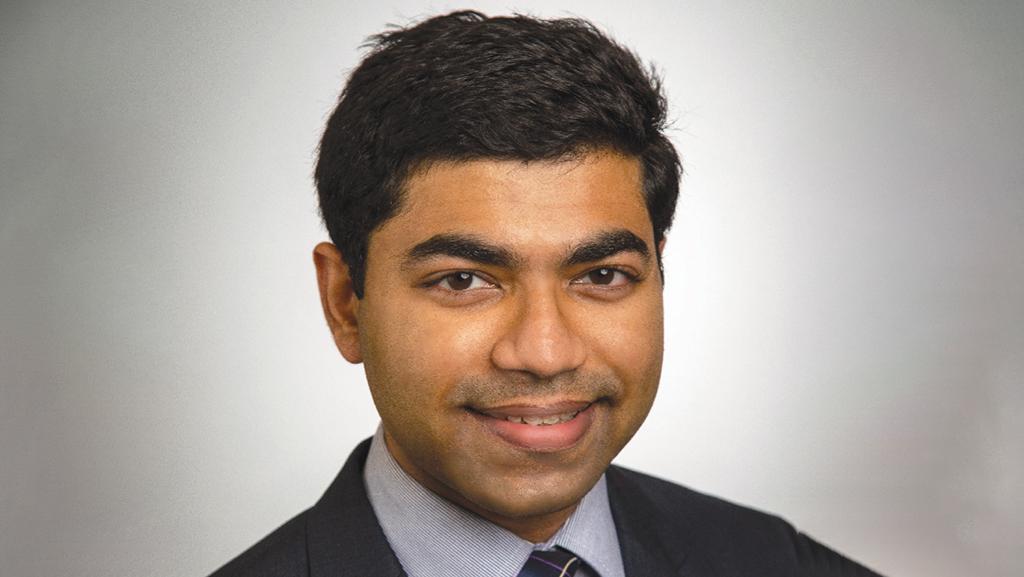
Anoop Kiran—B.S. Aerospace Engineering | Class of 2022 | University at Buffalo, The State University of New York
Kiran is focused on improving satellite structures and control in perturbed environments. He was chosen as a NASA Space Grant Scholar for his research that created an algorithm to filter measurements containing noise over time to provide estimates of satellite trajectory prediction. Kiran’s research also has supported the U.S. Army Research Laboratory on maturation of eye-tracking capabilities. He has interned at Boeing, GKN Aerospace and the NASA Jet Propulsion Laboratory.
Kiran’s experience as an immigrant inspired him to perform volunteer mentor work with International Student Services and Buffalo Engineering Awareness for Minorities. He also has utilized his bilingual skills to work as an IRS-certified volunteer income tax preparer for low- and moderate-income families in his community.
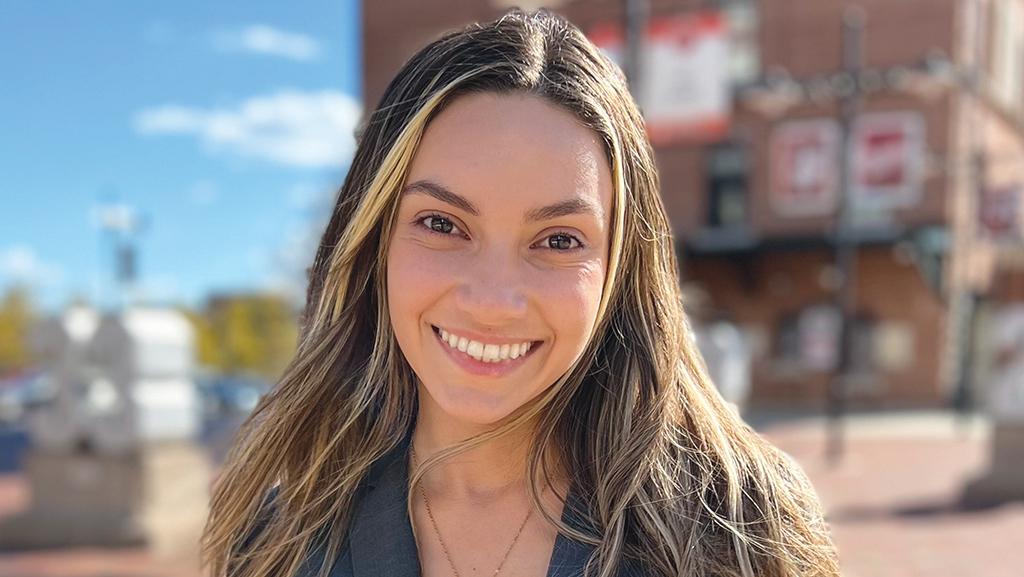
Perla Latorre-Suarez—Graduate Student, Aerospace Engineering | Class of 2023 | University of Central Florida | B.S. Mechanical Engineering | Class of 2021 | University of Central Florida
Latorre-Suarez’s research projects will support NASA’s Artemis mission by protecting the lunar lander, rovers and other vehicle components used for lunar exploration. She is leading a project to design wear-resistant materials to protect space missions from harsh lunar environments and researching the optical properties of lunar soil. She has interned at NASA Langley Research Center and led a team competing in the NASA MINDS program to design an adaptive connection for multiple tethered drones.
Through the National Security Innovation Network X-Force Fellowship, Latorre-Suarez worked with the U.S. Army Research Laboratory to design drones for surveillance missions. Her experience moving from Puerto Rico to the U.S. mainland at age 16 inspired her to perform volunteer work helping people who speak English as a second language earn high school diplomas or GED certificates. She also leads STEM outreach events for K-12 students.
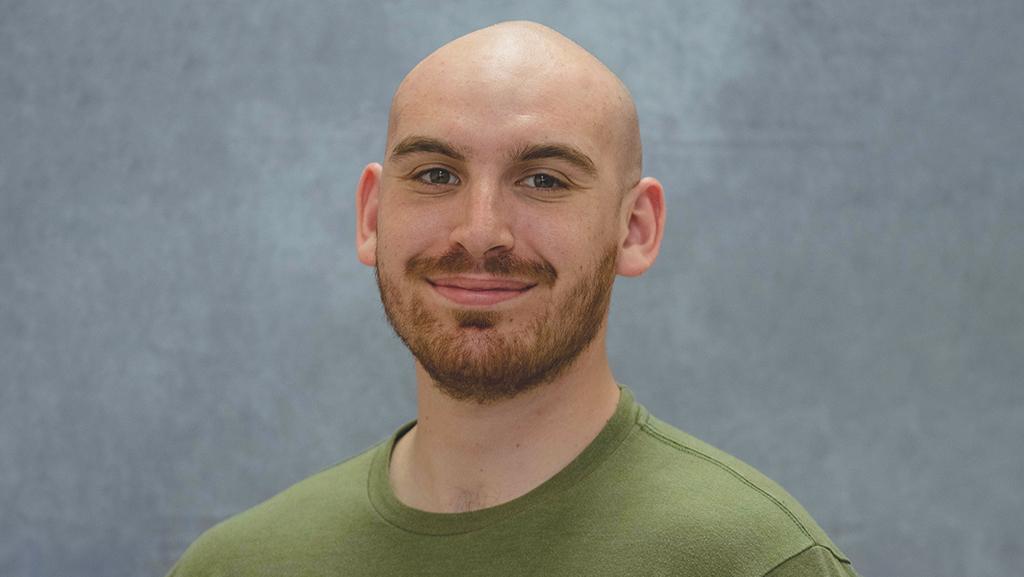
Daniel Mayper—B.S. Aeronautics and Astronautics | Class of 2022 | Purdue University
Mayper’s undergraduate research is helping to refine the properties of lunar landers so they are able to withstand high landing temperatures. He was part of a team that designed and built an original experiment to measure the plume-impingement heating of lunar-lander legs during landing. The experiment is scheduled to fly on Masten Space System Xodiac rocket at Mojave Air and Space Port this year.
Mayper is a member of the Indiana Army National Guard, for which he performs maintenance and repair on helicopters. While deployed to Kuwait and Saudi Arabia, he continued his studies through remote learning. He is president of the Purdue Student Veteran Organization and volunteers with the school’s Veterans Success Center to help veterans, active service members and their dependents understand and utilize their GI Bill benefits.
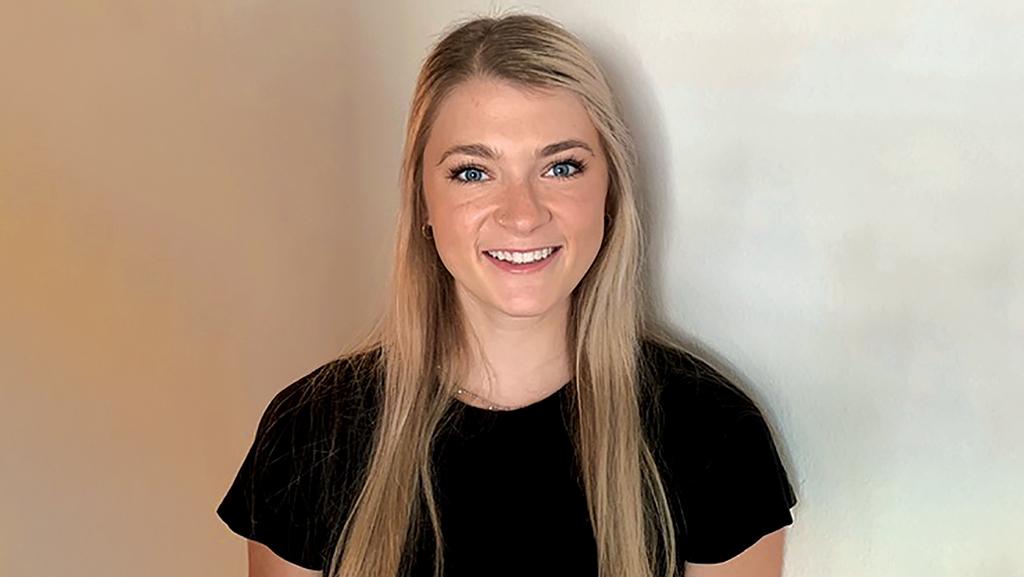
Hailey Nichols—M.S. Aerospace Engineering | Class of 2022 | The University of Texas at Austin | B.S. Aerospace Engineering and Aerospace Information Technology | Class of 2019 | Massachusetts Institute of Technology
While researching developments to enable the safe autonomous flight of drones, Nichols founded a startup called Locus Lock that aims to provide low-cost, precise positioning technology to the commercial sector. Her startup has developed a software-defined technique using GPS and global navigation satellite systems, which she says will be key for emerging technologies such as urban air mobility vehicles, since existing aviation-certified GPS receivers are costly, heavy and do not provide the accuracy needed for urban environments.
Nichols has interned at Lockheed Martin and Kitty Hawk, and she has worked as a UAV software engineer at Aurora Flight Sciences. She was captain of MIT’s varsity women’s soccer team and volunteered as a tutor for the Petey Green Program, which provides supplemental education in correctional institutions.
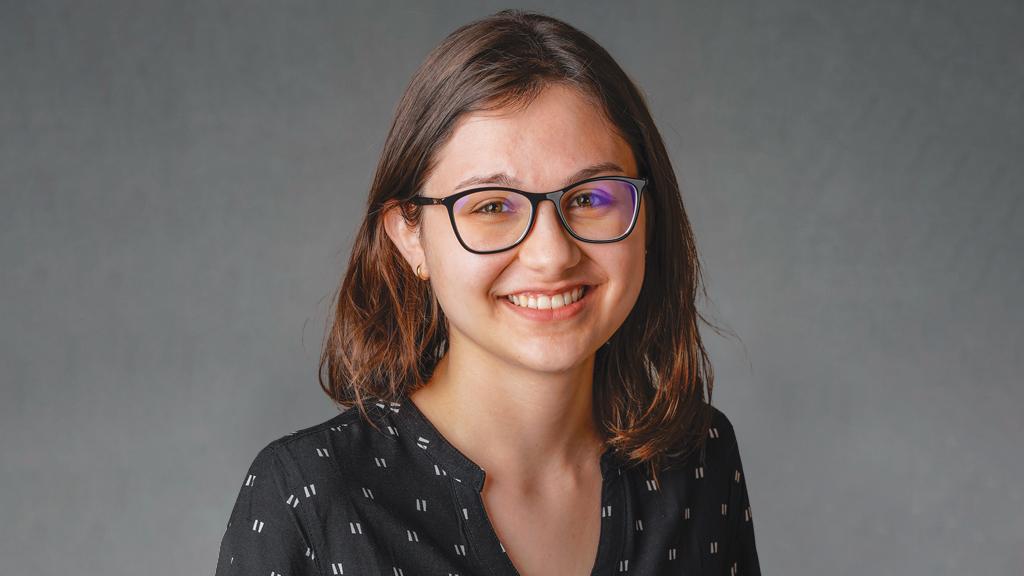
Luisa Piccolo Serafim—Graduate Student, Mechanical Engineering | Class of 2026 | Duke University | B.S. Mechanical Engineering | Class of 2021 | Universidade Federal de Santa Catarina
Piccolo Serafim’s research at Duke University’s Aeroelasticity Research Laboratory is assessing high-speed flows and fluid-solid-thermal interactions for supersonic and hypersonic applications. Her research can potentially improve how the aerospace industry approaches complex aerodynamic and aeroelastic problems during technological development.
Originally from Brazil, Piccolo Serafim completed an engineering internship at Embraer. During her undergraduate studies, she volunteered to attract—and keep—youth in STEM studies, including founding a student organization to help her university better identify and address issues such as gender discrimination and biased evaluation. As a member of Duke’s Diversity, Equity, Inclusion and Community committee, she supports underrepresented groups through the graduate school application process.
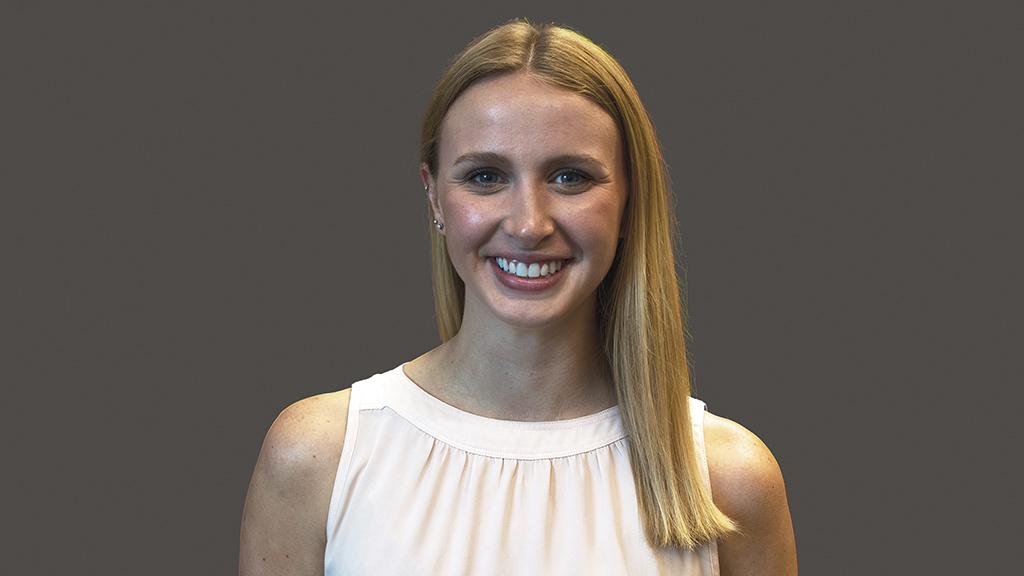
Grace Robertson—B.S. Aerospace Engineering | Class of 2022 | Embry-Riddle Aeronautical University
While working at Embry-Riddle’s Space Technologies Lab, Robertson was part of a student team that designed and assembled a cubesat capable of capturing images of the first commercial lunar landing. The EagleCam CubeSat was delivered to Intuitive Machines, which plans to launch it in the fourth quarter of this year. She has interned at Lockheed Martin and Collins Aerospace and is now a Sierra Space systems engineer.
During her studies, Robertson was involved in various volunteer efforts focused on STEM education, bridging inequalities and environmental change. In addition to participating in monthly beach cleanups, she worked on an engineering project to design a robot that can remove microplastics from beach sand. As public relations officer for the Association for Women in Mathematics, she helped organize the Women in Science at Embry-Riddle event, which hosts STEM competitions for high school-age girls.
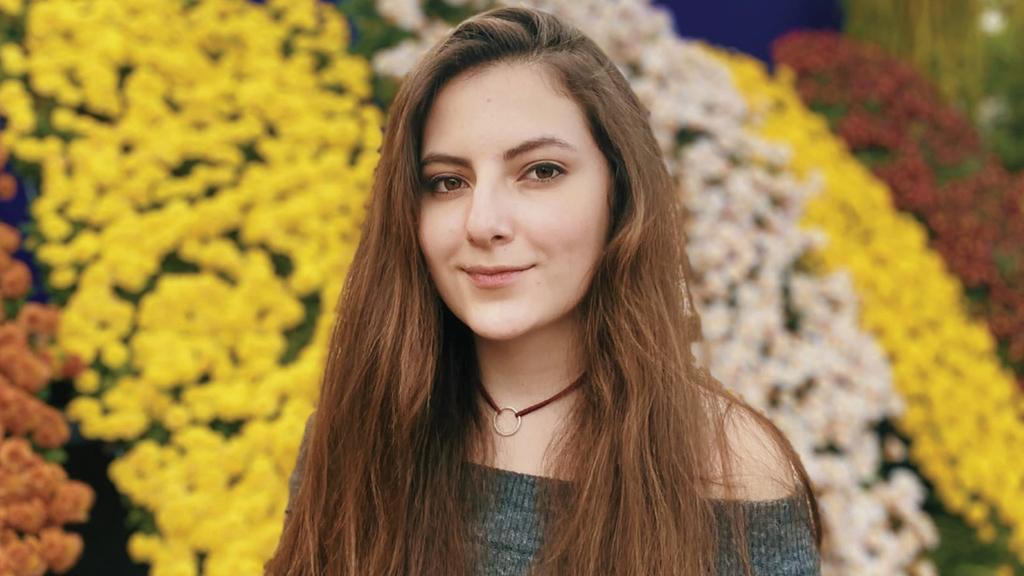
Alina Santander Vinokurova—Undergraduate Student, Mechatronics Engineering | Class of 2023 | Vaughn College of Aeronautics and Technology | B.S. Physics | Class of 2021 | Universidad Mayor de San Andres
Santander Vinokurova was the first Bolivian to compete in the NASA Rover Challenge, which she has participated in since 2016. At her university in Bolivia, she worked with a team at the Condensed Matter Laboratory to design for the challenge a mechanical rover inspired by the Andean hairy armadillo. She is also the founder and president of Vaughn College’s NASA Rover Club.
Vinokurova was elected president of Vaughn College’s chapter of the Society of Women Engineers. She has given more than 70 professional talks, including two TEDx talks about her experiences in and perspectives on the aerospace industry. Her volunteer efforts have focused on reducing the gender gap in STEM and improving access to STEM education in Latin America, including leading virtual and in-person STEM events for children.
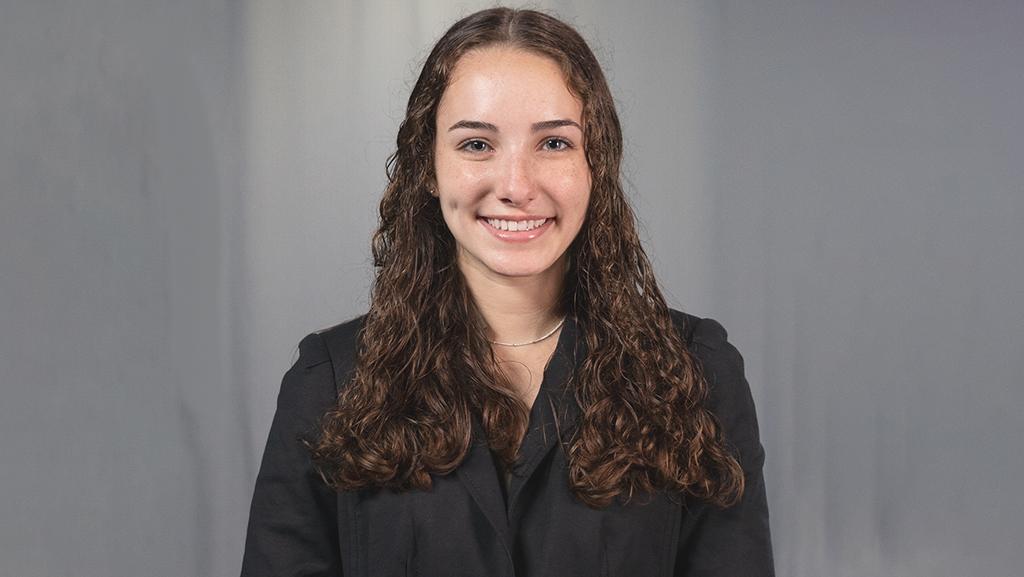
Morgan Mackenzie Serra—Undergraduate Student, Aerospace Engineering | Class of 2023 | University of Michigan
Serra built and debugged a new Model-Based Systems Engineering Lab for the University of Michigan’s Aerospace Department. This work led to her systems engineering internship at Collins Aerospace and helped her win a Department of Defense SMART Scholarship-for-Service award for her efforts. Serra is also chief engineer of M-SAAVE (Michigan Sustainability Applications for Aerospace Vehicle Engineering), an aircraft design team that partners with Air Serv International to design an autonomous vehicle for natural-disaster surveillance and delivery of food and medical supplies.
Serra is vice president of cost assistance for Resilient Engineers, where she raises emergency funds for engineering students experiencing financial hardship. She works on outreach events to promote STEM careers through the Society of Women Engineers and Women in Aeronautics and Astronautics. She is also engaged in volunteer work to help people with disabilities and to raise money for pediatric rehabilitation therapies.
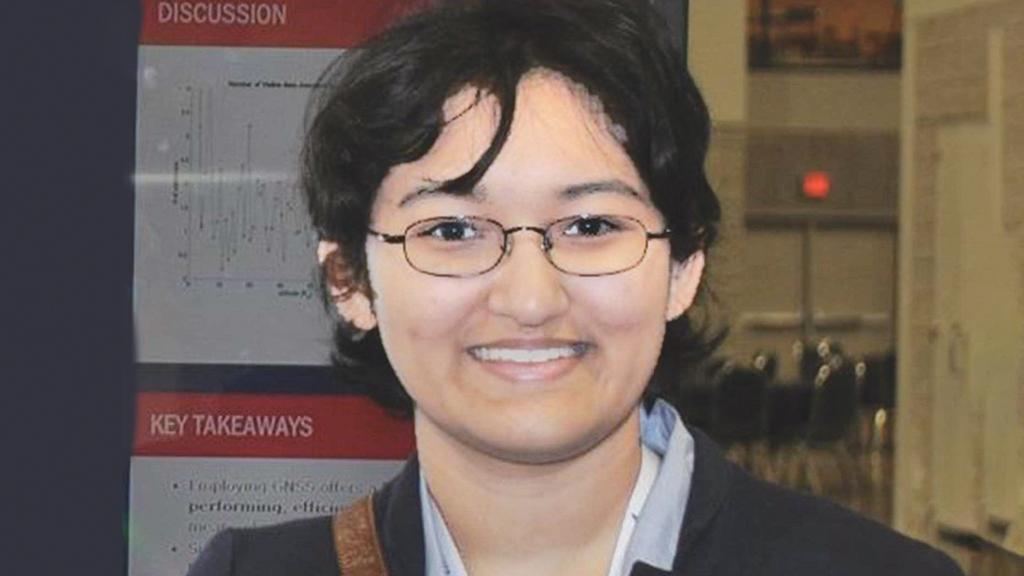
Caitlyn Singam—Graduate Student, Bioengineering | Class of 2024 | University of Maryland | B.S. Biological Sciences | Class of 2020 | University of Maryland
Through the National Science Foundation Graduate Research Fellowship, Singam is working to improve communications systems to transmit scientific data for long-range astrobiology missions. She won the Best Paper Award at the 2021 International Space Operations Conference for her research on handling data transmission across disruption-tolerant networks.
Singam interned at NASA before working as a systems engineer on the Dragonfly astrobiology mission. She is involved in numerous volunteer efforts to increase economic and racial diversity in STEM and volunteers at a cardiac clinic and in the Medical Reserve Corps. She applied her studies to these roles by developing a secure communications module for use by first responders and emergency personnel.
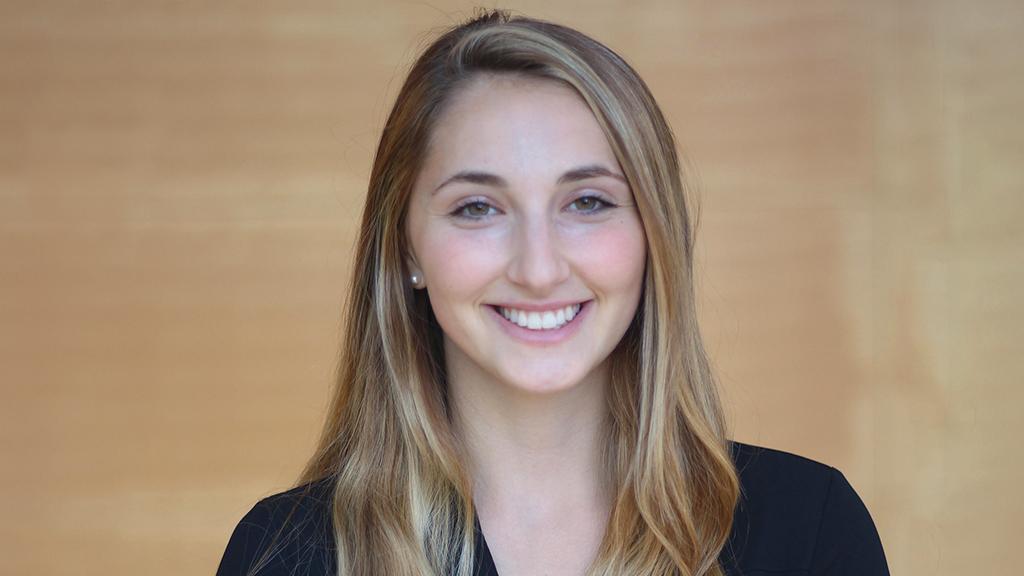
Julia Weiss—Graduate Student, Aerospace Engineering | Class of 2022 | University of Michigan | B.S. Aerospace Engineering | Class of 2021 | University of Michigan
Weiss is working with faculty at the University of Michigan to develop an undergraduate course series that will prepare students for real-world engineering operations and systems thinking through elements previously overlooked in the engineering curriculum, such as effective teaming, scheduling and budgeting. Through this project, she works with aerospace and defense industry representatives to ensure the curriculum matches industry needs.
Weiss also demonstrated her passion for enacting organizational change as vice president of the Michigan Aeronautical Science Association, where she led transformative efforts such as new member support networks and diversity, equity and inclusion initiatives. She has completed internships at Northrop Grumman and General Atomics as well.
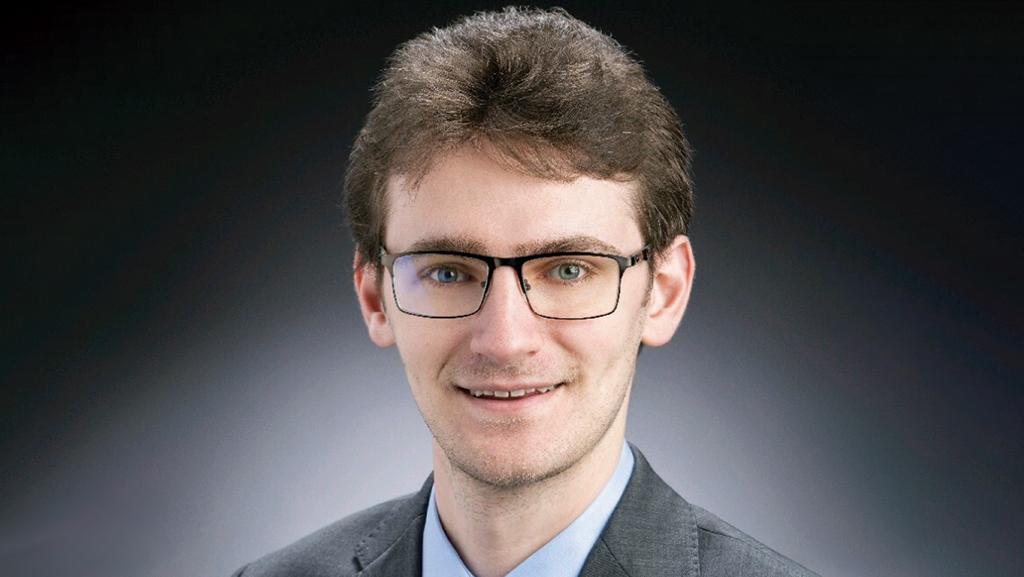
David Wolmark—Graduate Student, Aerospace Engineering | Class of 2022 | University of Southern California | Dual B.S. Aeronautical and Mechanical Engineering | Class of 2019 | Rensselaer Polytechnic Institute
Wolmark is a full-time aerospace engineer with the Johns Hopkins University Applied Physics Laboratory (JHU/APL) and is attending the University of Southern California for a master's degree in aerospace engineering through APL’s Part-Time Study Program. At USC, he has completed projects and coursework focused on demonstrating the efficacy of a moving mass control system as a means of trimming and controlling the rotational dynamics of a fixed-wing aircraft. He was previously an associate mechanical engineer at Northrop Grumman, where he worked on the design of structural, mechanical, electric and hydraulic parts and assemblies.
Wolmark has completed engineering internships at Pratt & Whitney and Bendix Engineering. While leading a Boy Scout group on a canoeing trip in 2013, he experienced a life-changing injury that restricted him to home instruction for half of his junior year in high school, which he says inspired him to dive more deeply into his coursework. He is now an Eagle Scout volunteer firefighter and emergency medical technician.
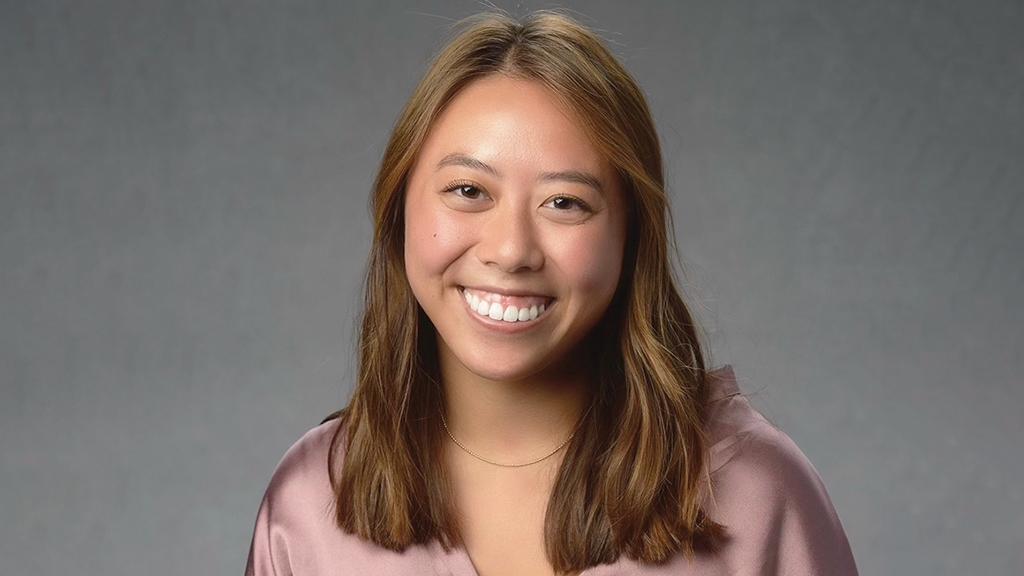
Angie Zhang—B.S. Aeronautical and Astronautical Engineering | Class of 2022 | Purdue University
Zhang’s FAA-sponsored research at Purdue helped to demonstrate the viability of profitable supersonic commercial flight using complex simulation and airline data. She completed three aerospace engineering internships at Lockheed Martin and one at Northrop Grumman, where she worked on projects such as electrical test procedures for satellite programs, analyzing risks in aircraft breathing systems and testing for modifications in aircraft software and hardware.
Zhang was president of Purdue’s chapter of the Society of Women Engineers, through which she led efforts toward improved diversity and equity in STEM. She was also an ambassador for the Purdue Student Engineering Foundation, where she led tours and information sessions to support prospective students.
